
For a growing number of U.S. households, financial stability is nothing more than a pipe dream, no matter how hard their members work. These households are ALICE – Asset Limited, Income Constrained, Employed – earning above the Federal Poverty Level yet struggling to afford basic expenses.
ALICE households:
- Span all races, ages, ethnicities, and abilities, though households of color are disproportionately ALICE
- Include workers whose wages cannot keep up with the rising cost of goods and services
- Often include those who are working two or more jobs and still cannot pay their bills
- Include family members who need care and assistance, which makes it harder for their caregivers to find adequate work
- Live paycheck to paycheck and are forced to make impossible choices: pay the rent or buy food, receive medical care or pay for child care, pay utility bills or put gas in the car
- Are part of every community nationwide
ALICE may be your relative, friend, colleague, or neighbor, or you might be ALICE. ALICE may also be your health care provider, teacher, retail clerk, sanitation worker, and others. ALICE workers are the backbone of our economy, with the pandemic making it crystal clear just how much we need them.
Please contact us to have one of our engaging ALICE experts visit your business or organization.
LATEST ALICE RELEASE
ALICE IN SOUTHWEST LOUISIANA
Between 2007 and 2018, Louisiana experienced steady economic improvements according to traditional measures. Unemployment in the state, as well as across the U.S., fell to historic lows, GDP grew, and wages rose slightly. Yet in 2018, 51% of households still struggled to make ends meet. While 18% of these struggling households were living below the Federal Poverty Level (FPL), another 33% were ALICE: Asset Limited, Income Constrained, Employed.
These households earned above the Federal Poverty Level because they were working, but not enough to afford basic household necessities.
In Southwest Louisiana, 50 percent of the households that make up Allen, Beauregard, Calcasieu, Cameron and Jefferson Davis Parishes are living at or below the ALICE Threshold. Eighteen towns and cities across the region, including the largest - Lake Charles, have at least 40% of households struggling to make ends meet.
So, what are we going to do about it? We know that the first step is introducing ALICE to the community. By placing this report at the center of tables in Southwest Louisiana - coffee tables, dinner tables and even policy tables - we hope to spark the dialogue and encourage the conversation needed to help begin the process of moving families and individuals above the ALICE Threshold.
While there are United Way of Southwest Louisiana programs that currently serve the ALICE population, like VITA, SingleCare Prescription Discount Card, and WriteStart Project, we hope to use the United Way ALICE Report as a guide for future programming and community partnerships.
"We know we've unleashed the challenges of ALICE with this report and if we can work with our partners and communities we are hopeful that we can help to move these households above the ALICE Threshold - to take care of those families and help move them forward," said Denise Durel, United Way of Southwest Louisiana President and CEO. "Families should be in a position to handle whatever they face."
ASSET LIMITED, INCOME CONSTRAINED, EMPLOYED
By definition, ALICE families and individuals make more than the federal poverty level but less than the ALICE Threshold, which is needed to afford the basic necessities of housing, childcare, food, transportation and healthcare.
ALICE is working, yet not earning enough to pay for basic needs.
ALICE has little or no savings and is one emergency away from falling into poverty or homelessness.
ALICE individuals struggle every month to afford basic necessary expenses like transportation, childcare, food and rent.
We come into contact with ALICE each and every day. We come in contact with ALICE multiple times each and every day. ALICE brews up the coffee at the local coffee shop, freshly presses dry cleaning, tends the counter at a convenience store and even cares for the elderly and children. These hardworking individuals and families live paycheck-to-paycheck with no extra money to set aside in savings. They are forced to make short-term decisions that have detrimental long-term consequences.
Do I get a payday loan to buy school supplies and uniforms for my children? Do I pay utilities or rent this month? Do I believe the necessary medication or food for my table? If an unexpected expense comes up, what bill can I pay late?
These are the questions ALICE is faced with daily. ALICE plays an absolutely critical role in keeping any economy running, but unfortunately, they aren't always sure if they can take care of their most basic needs. What can be considered an inconvenience for some - a flat tire, a bump in the cost of your insurance premium, a winter electric bill - is an issue that can send ALICE spiraling towards poverty or homelessness.
HOUSEHOLD SURVIVAL BUDGET
The cost of basic necessities at a bare-minimum level.
It does not include any savings, which leaves a family unable to pay for unexpected expenses.
Housing
Childcare
Food
Transportation
Healthcare
Technology
Taxes
When viewing the Household Survival Budget needed for each parish in Southwest Louisiana, take special note of the hourly wage necessary to cover all the basics in the survival budget and remember that:
66% OF JOBS IN SOUTHWEST LOUISIANA PAY LESS THAN $20 PER HOUR

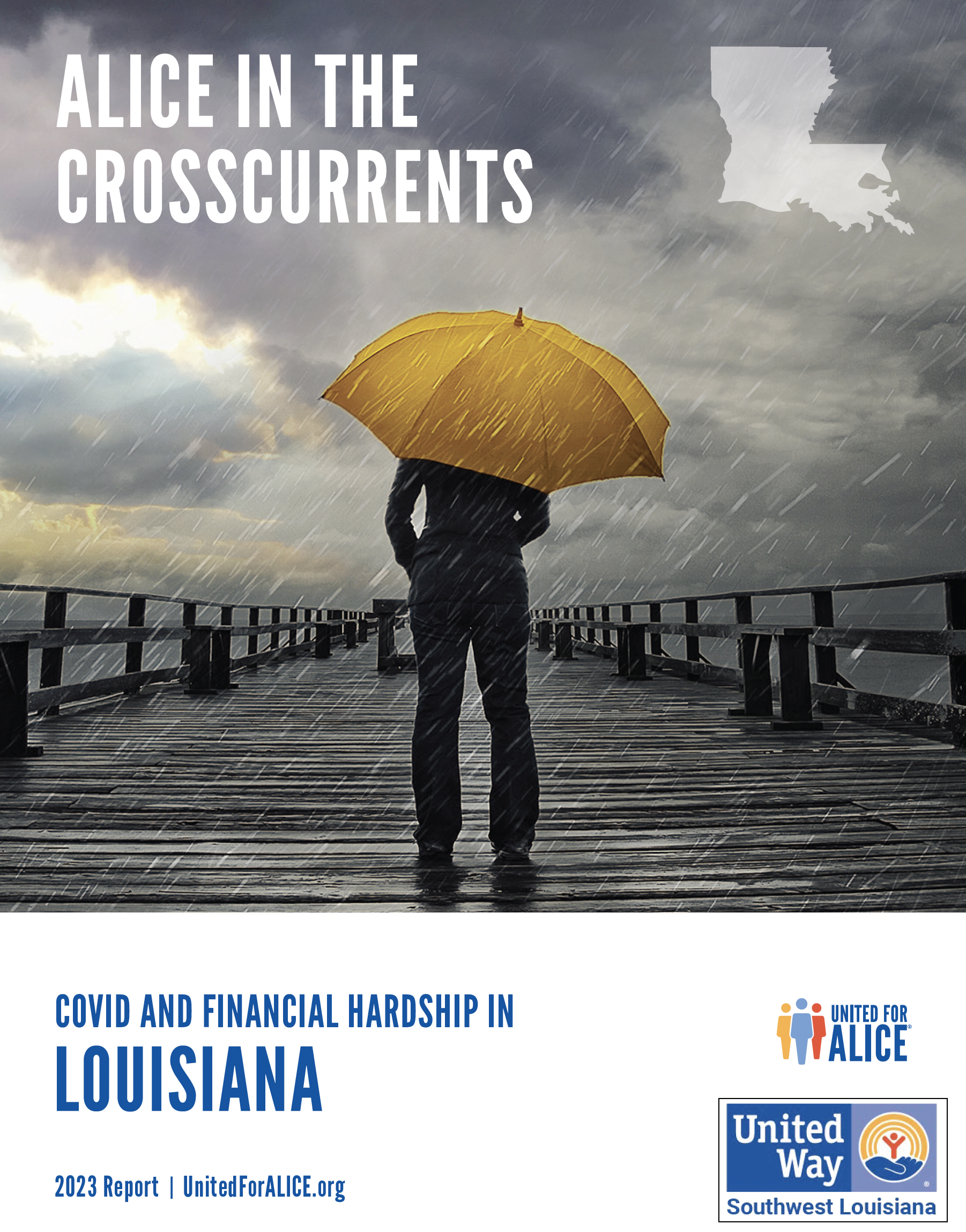
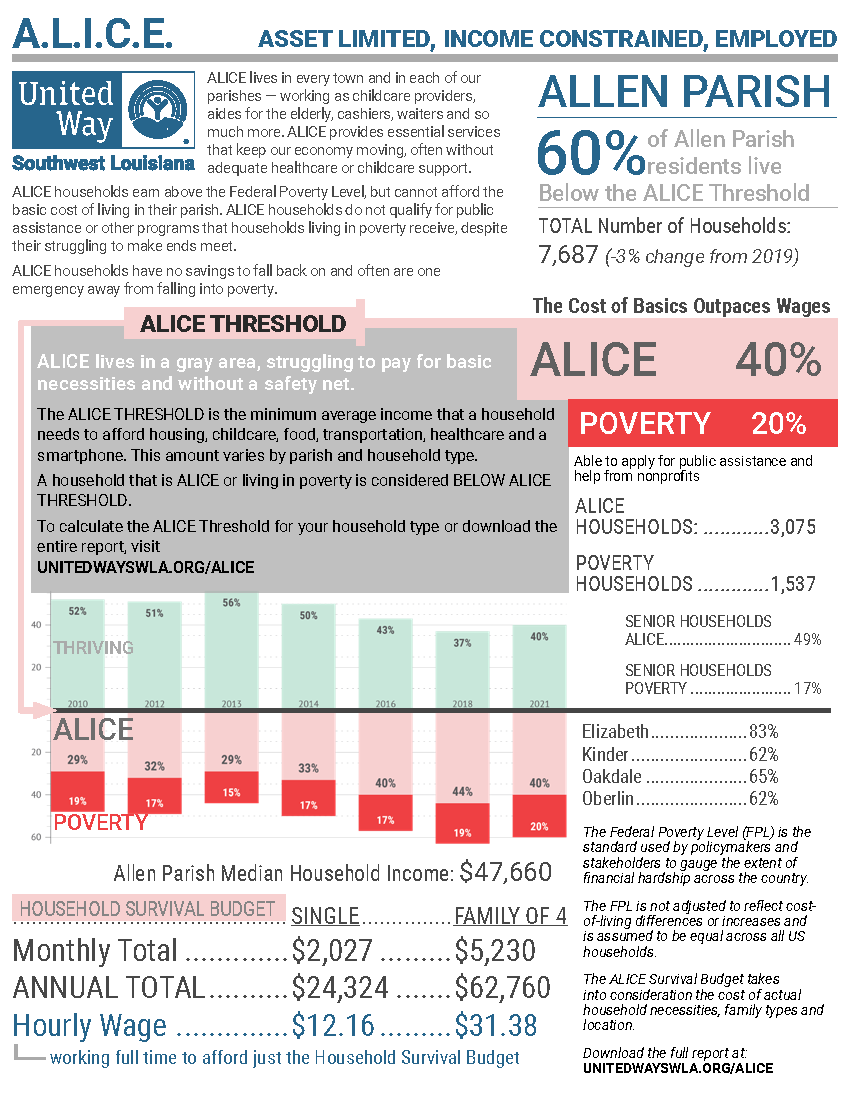
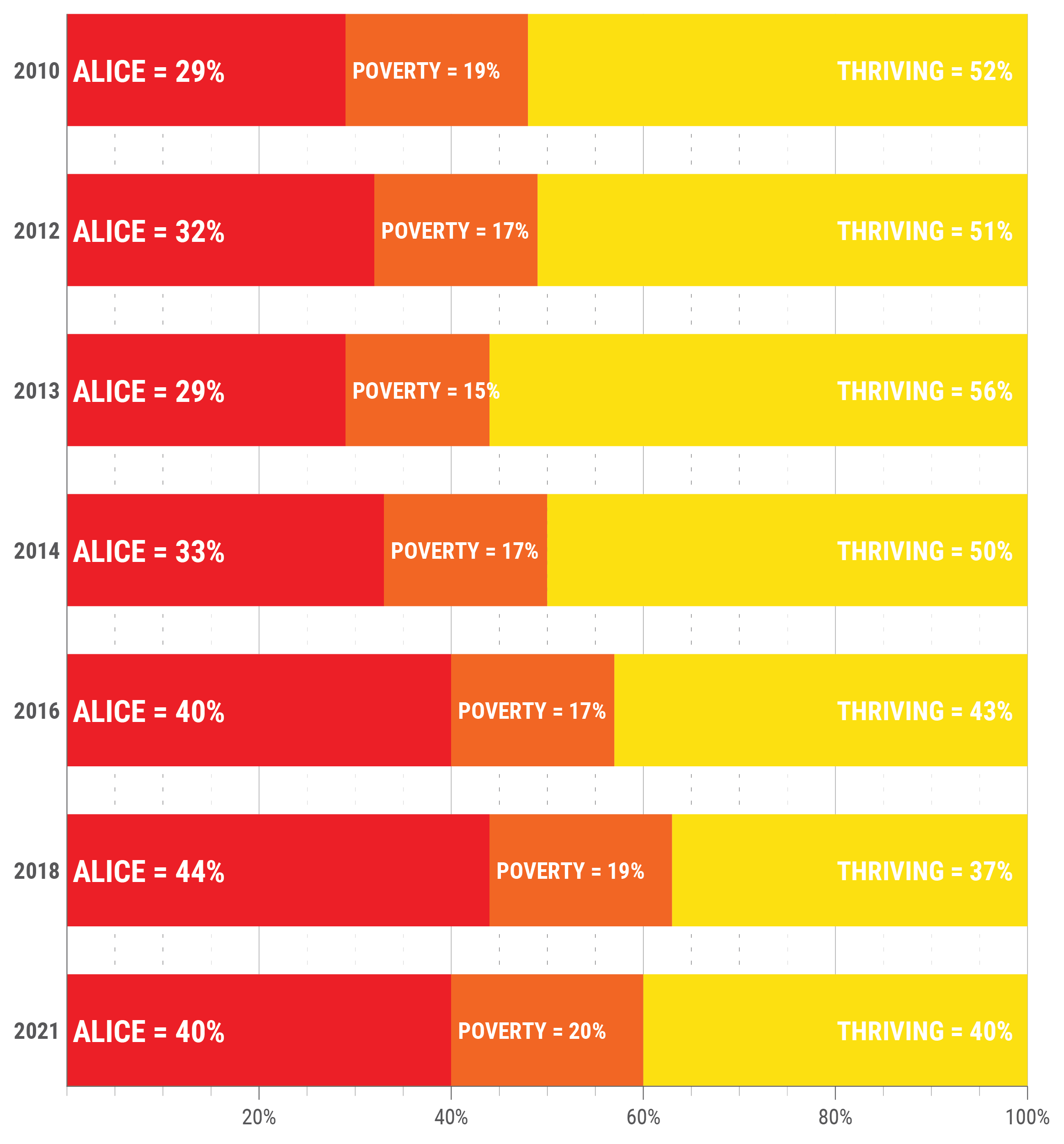
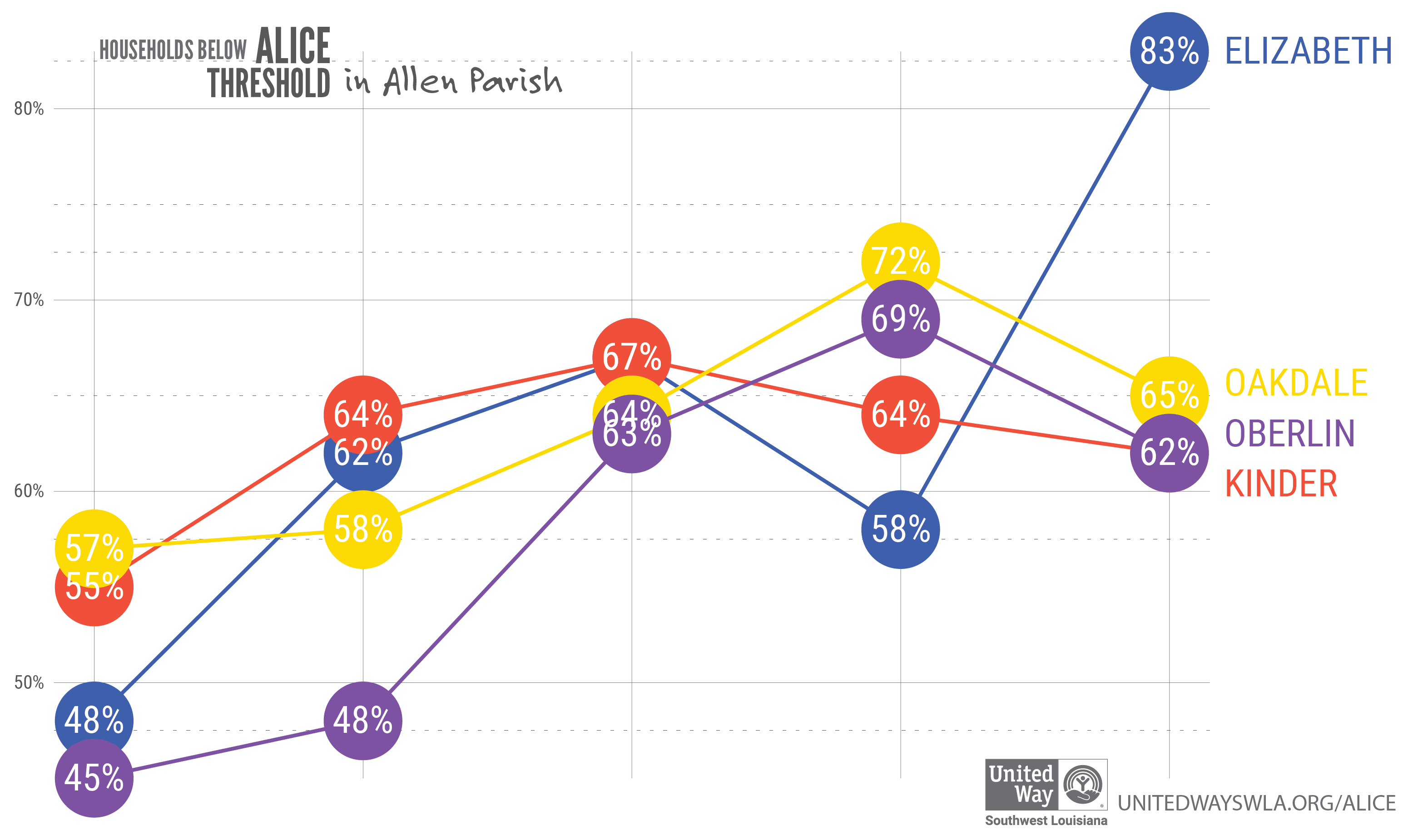
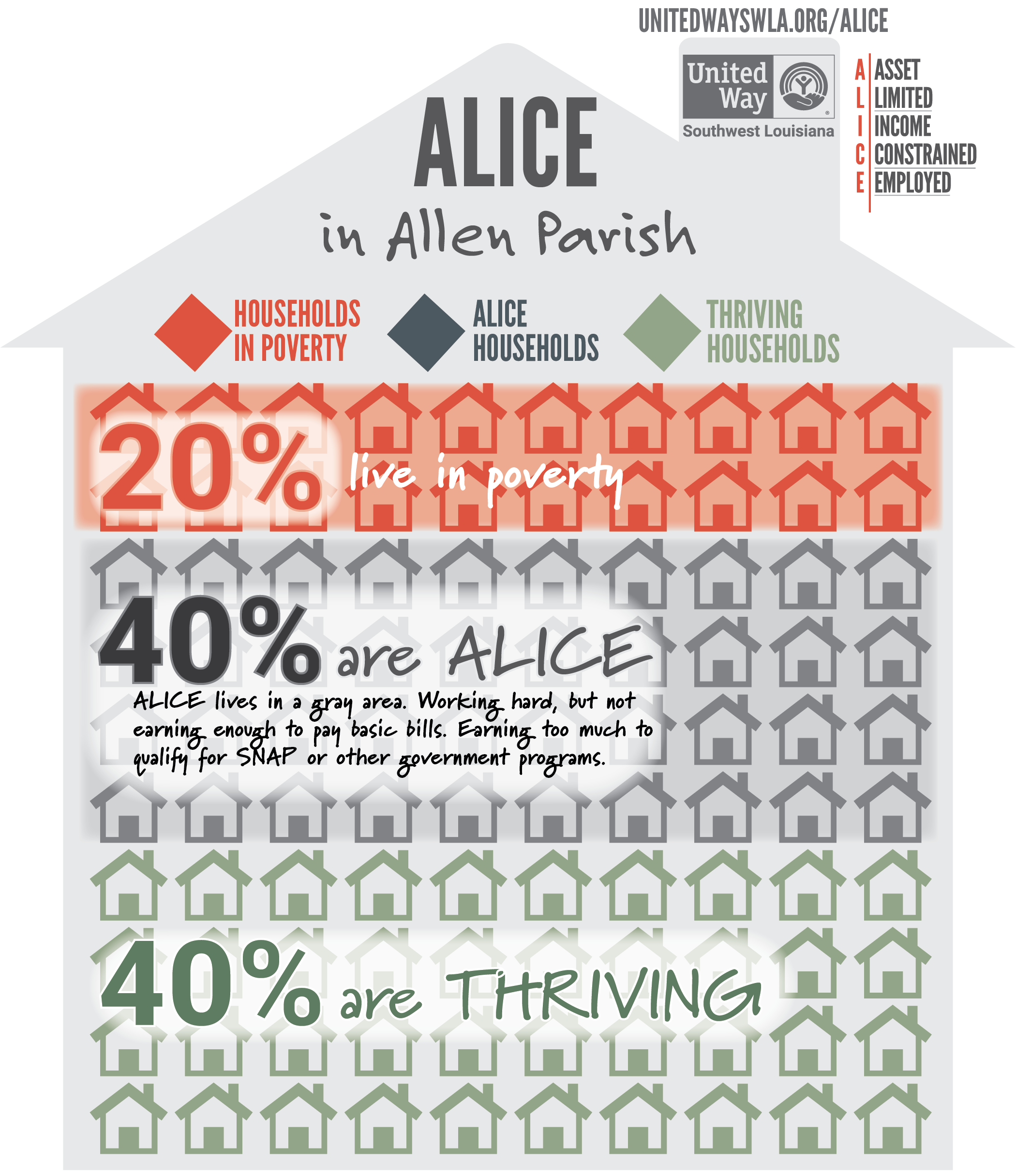
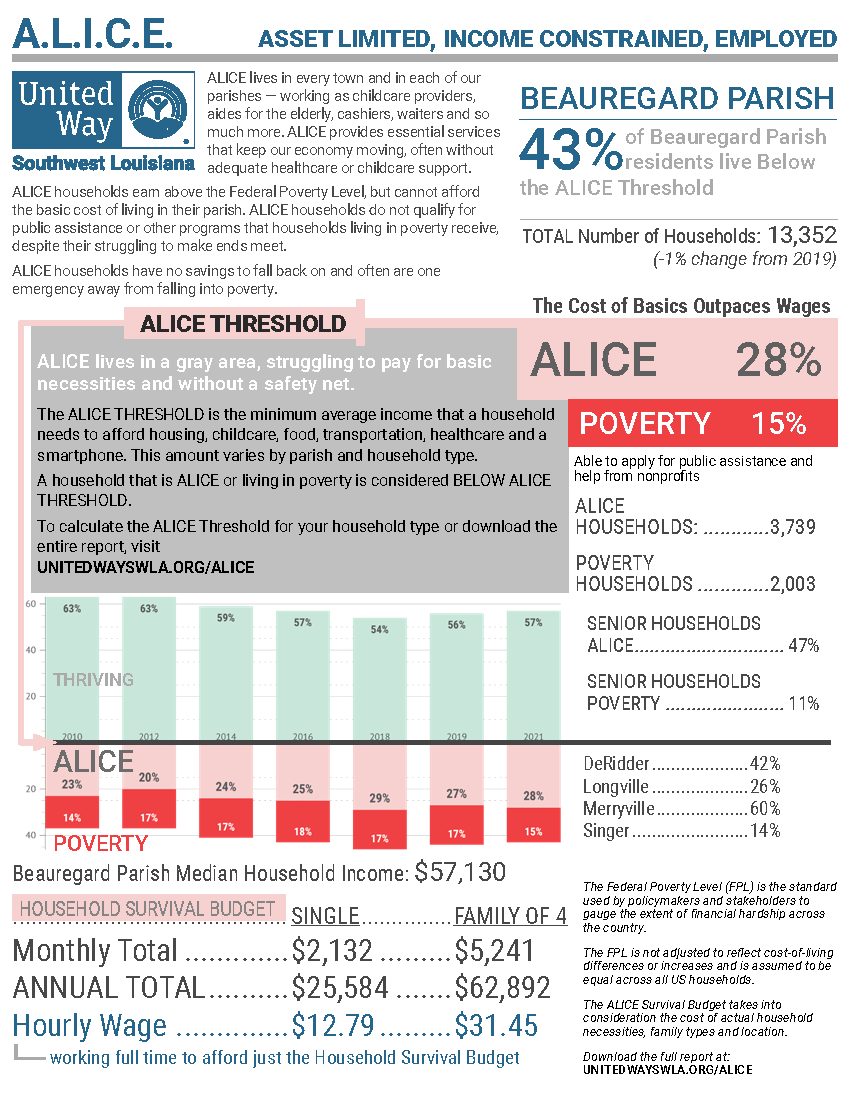
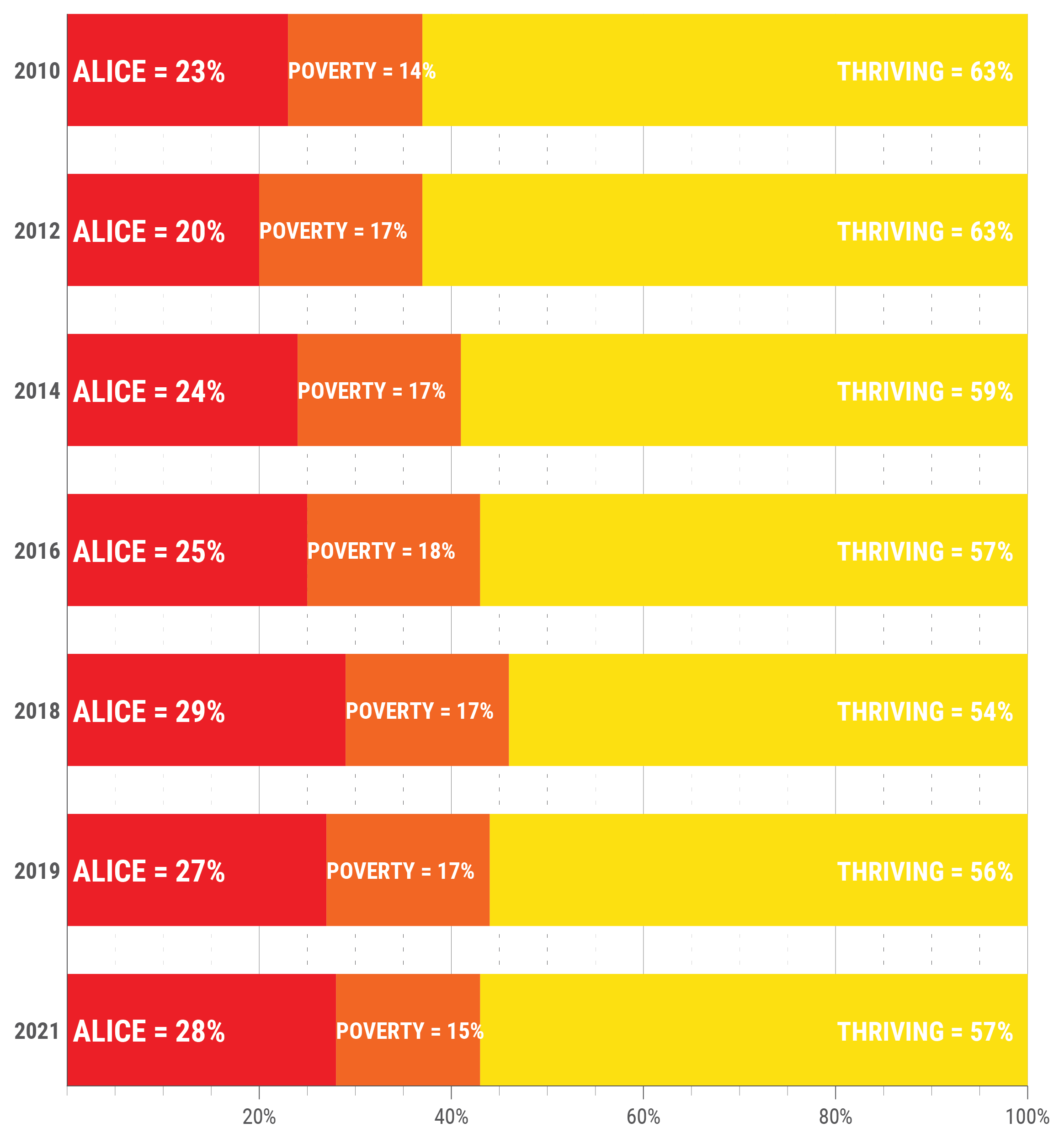
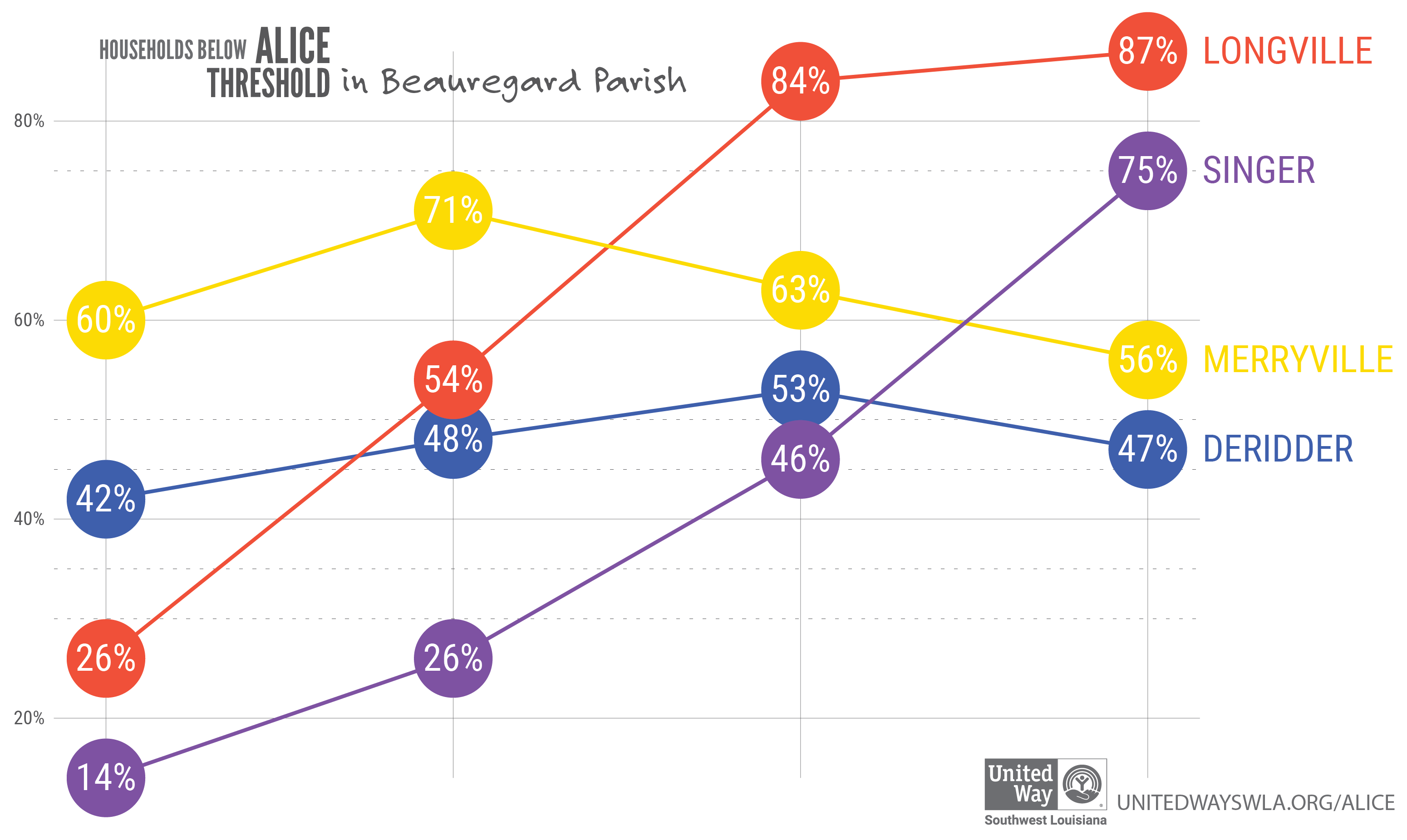
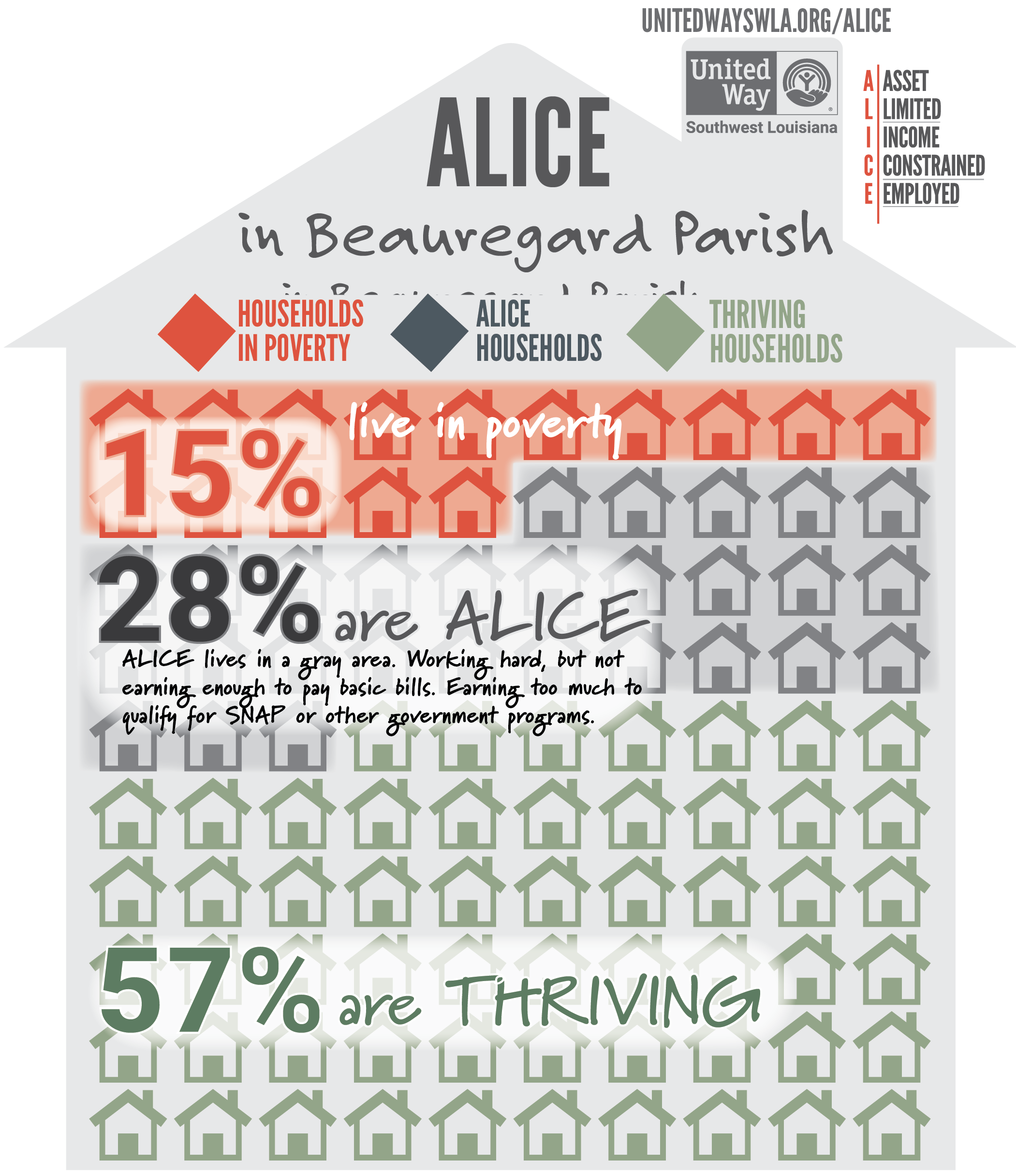
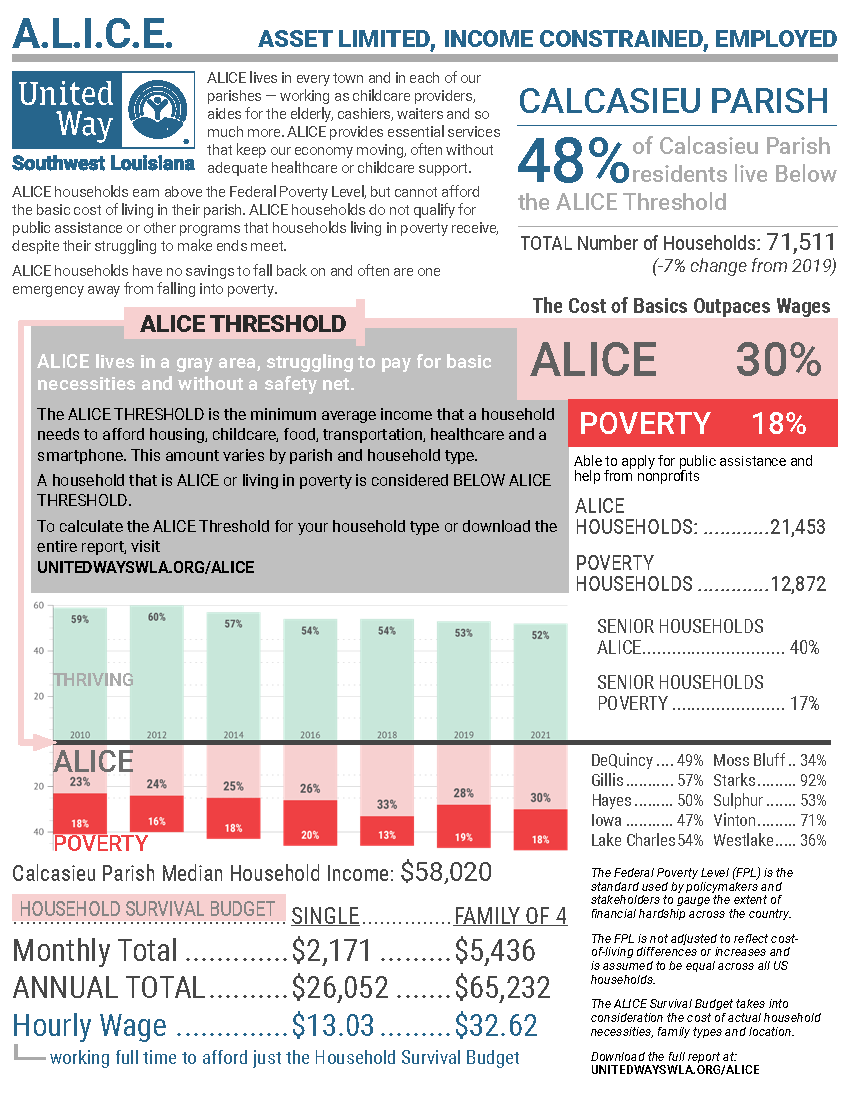
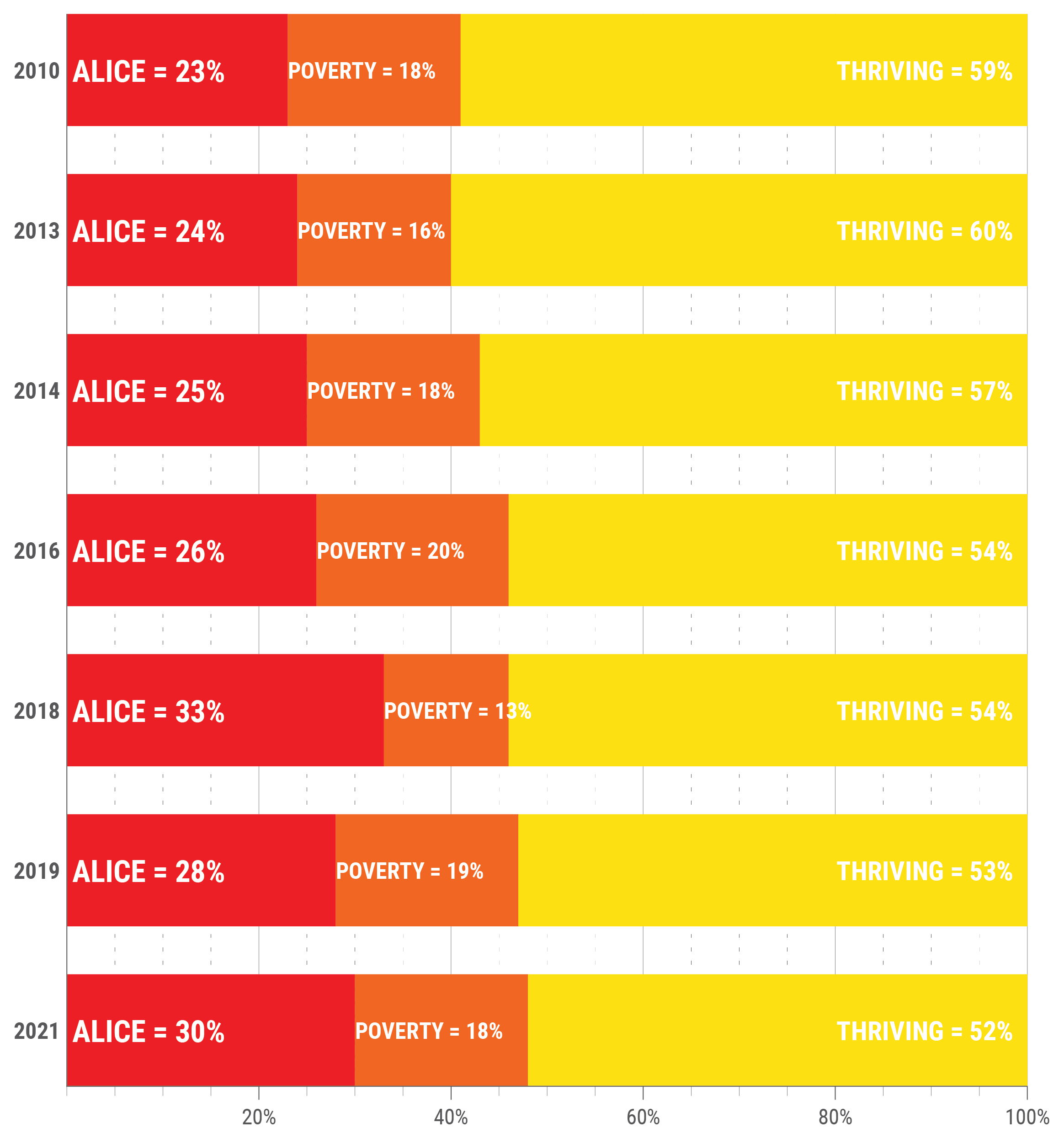
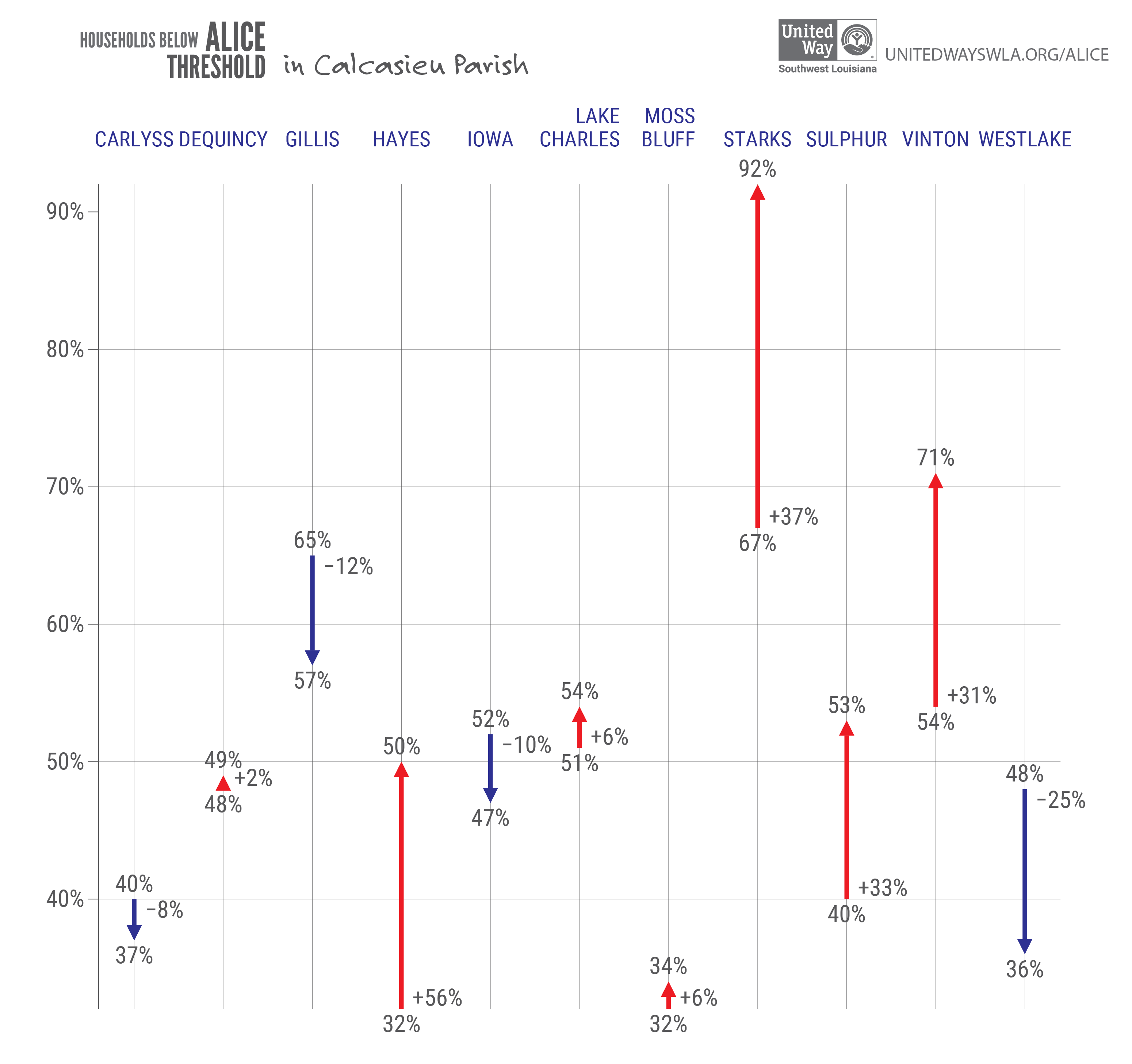
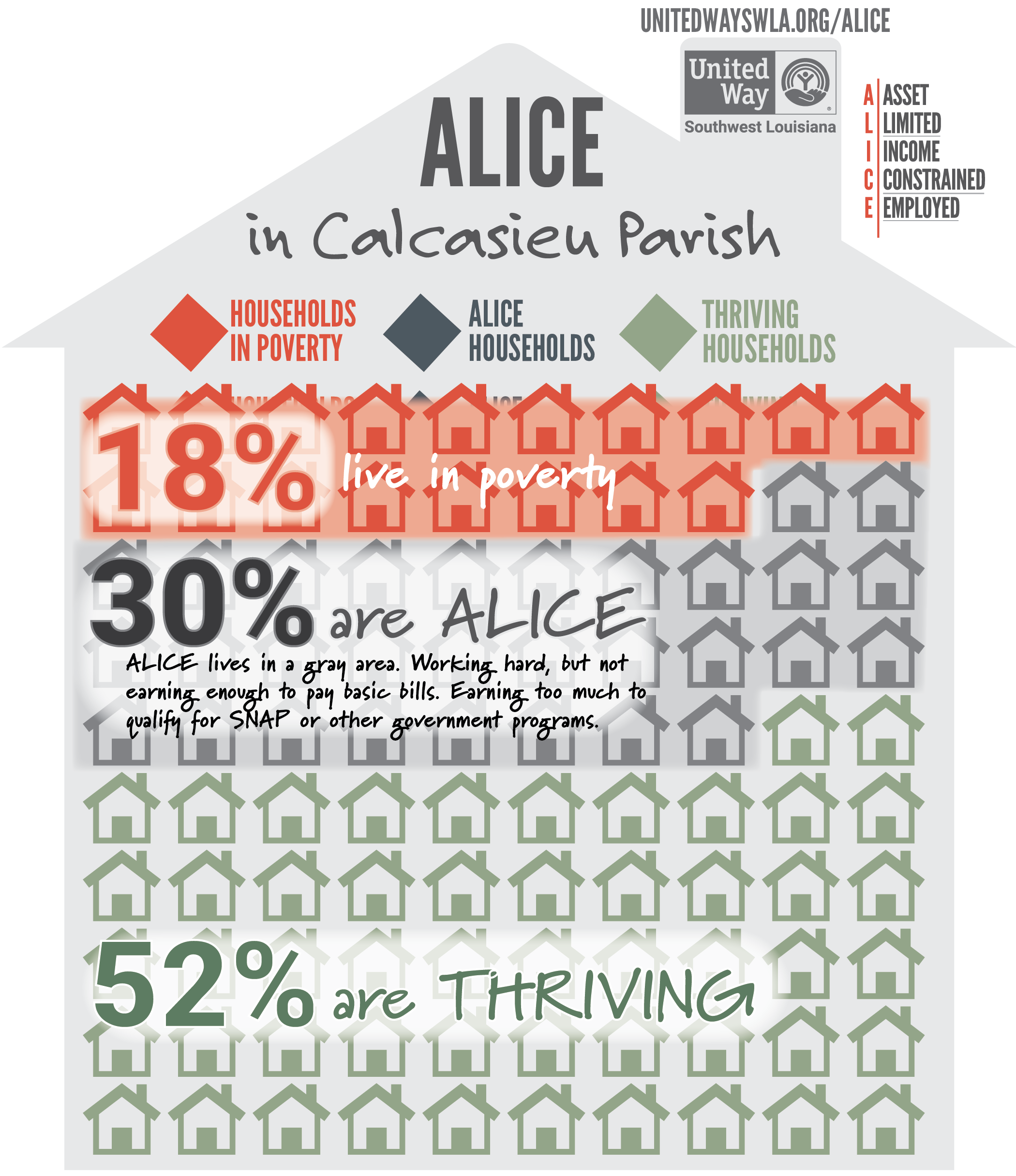
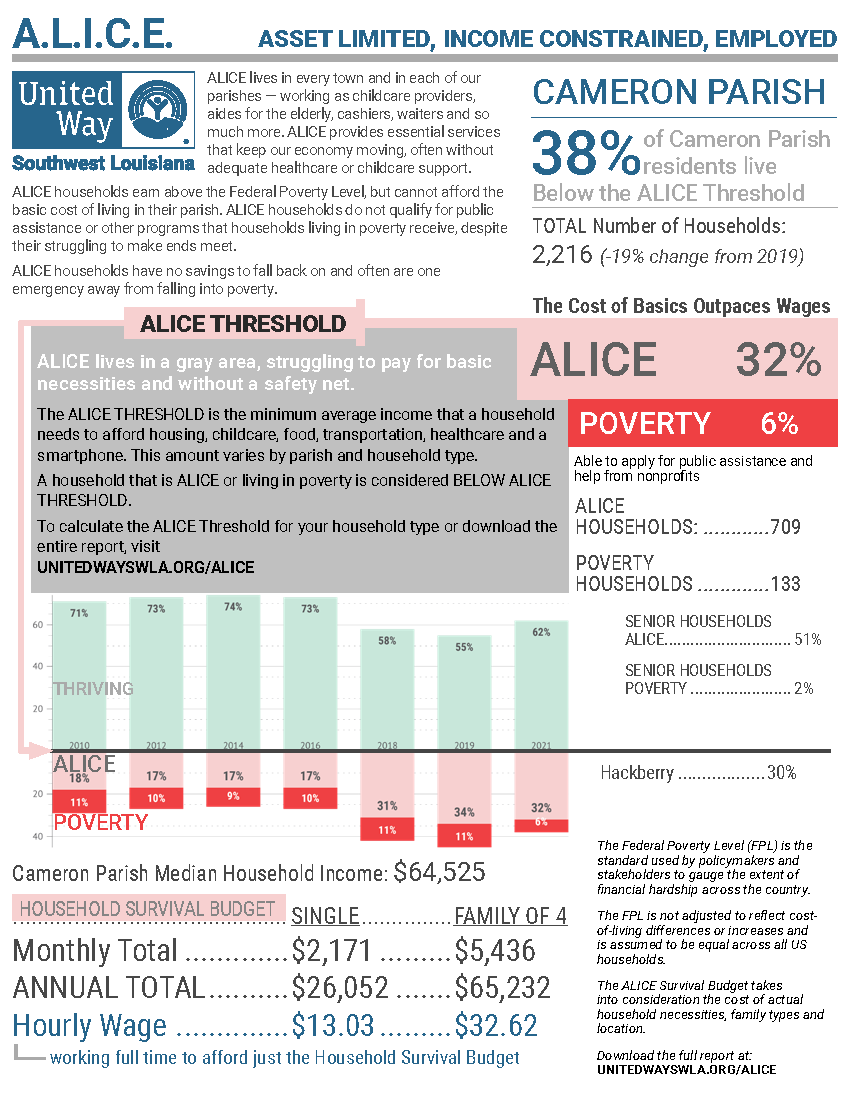
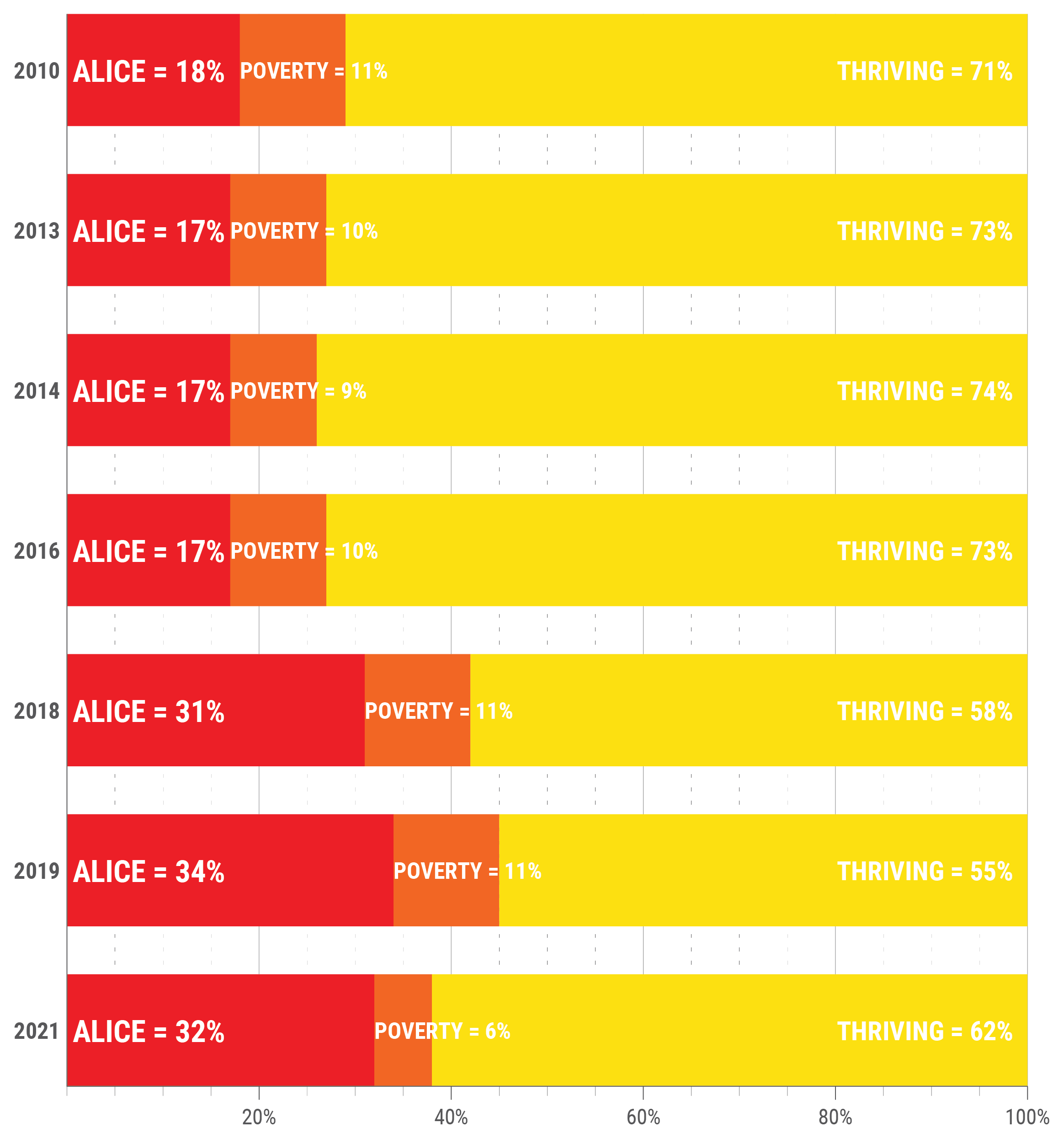
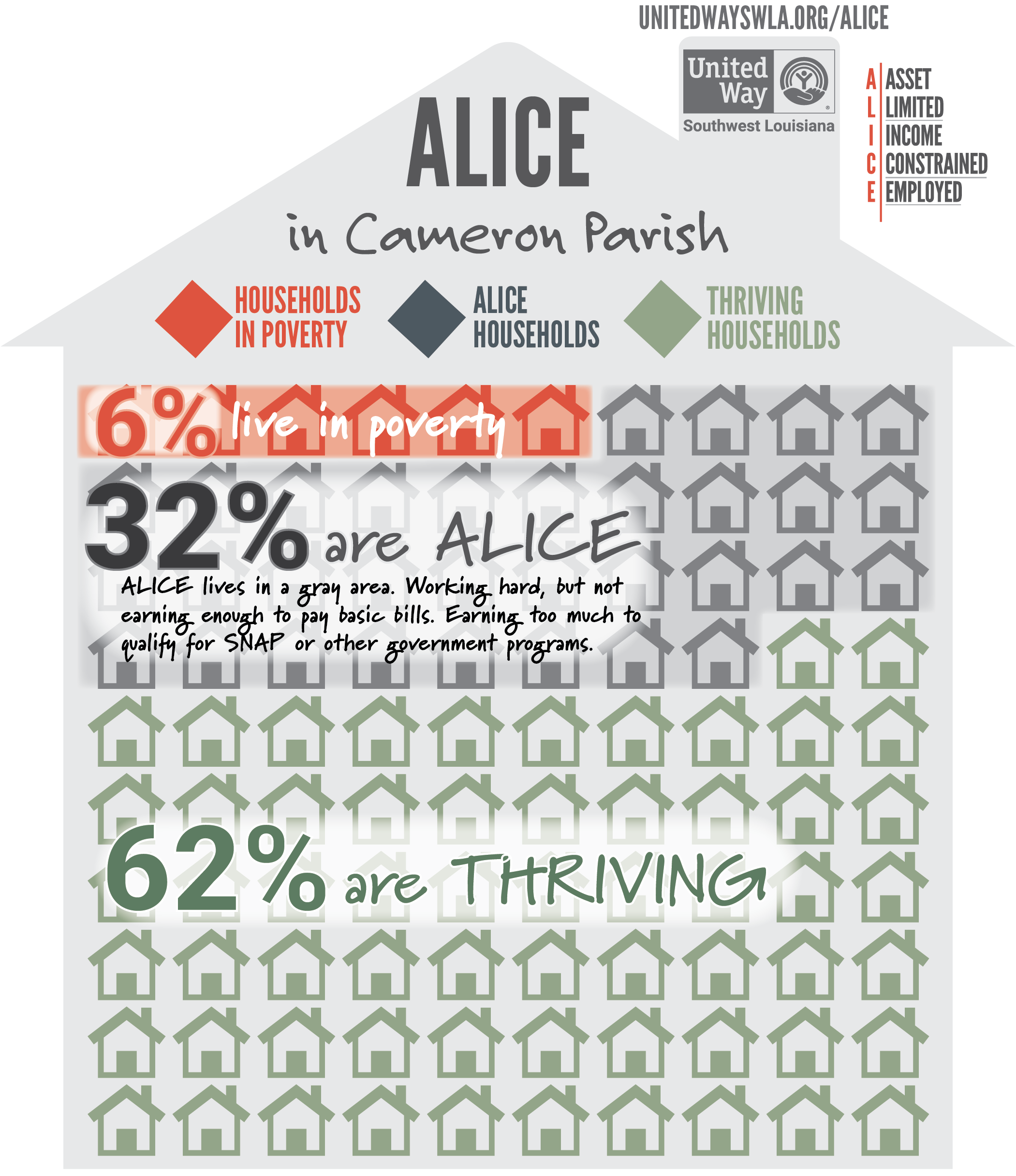
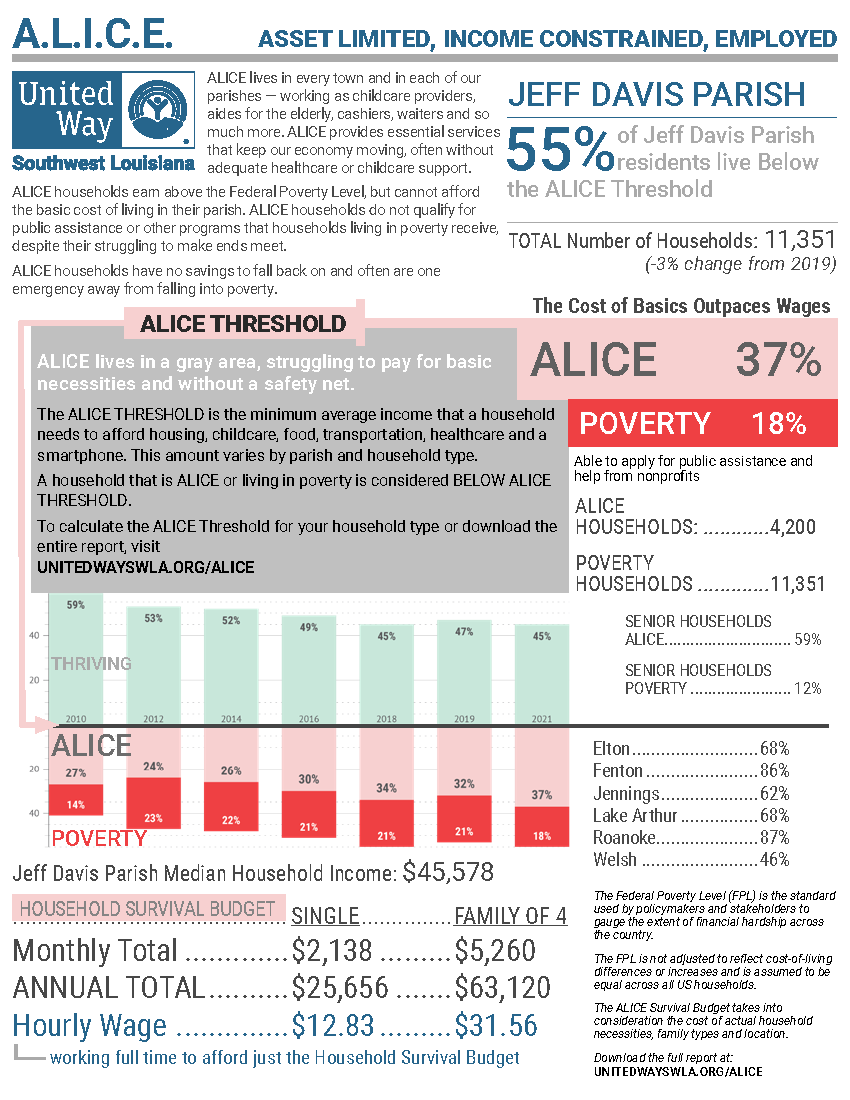
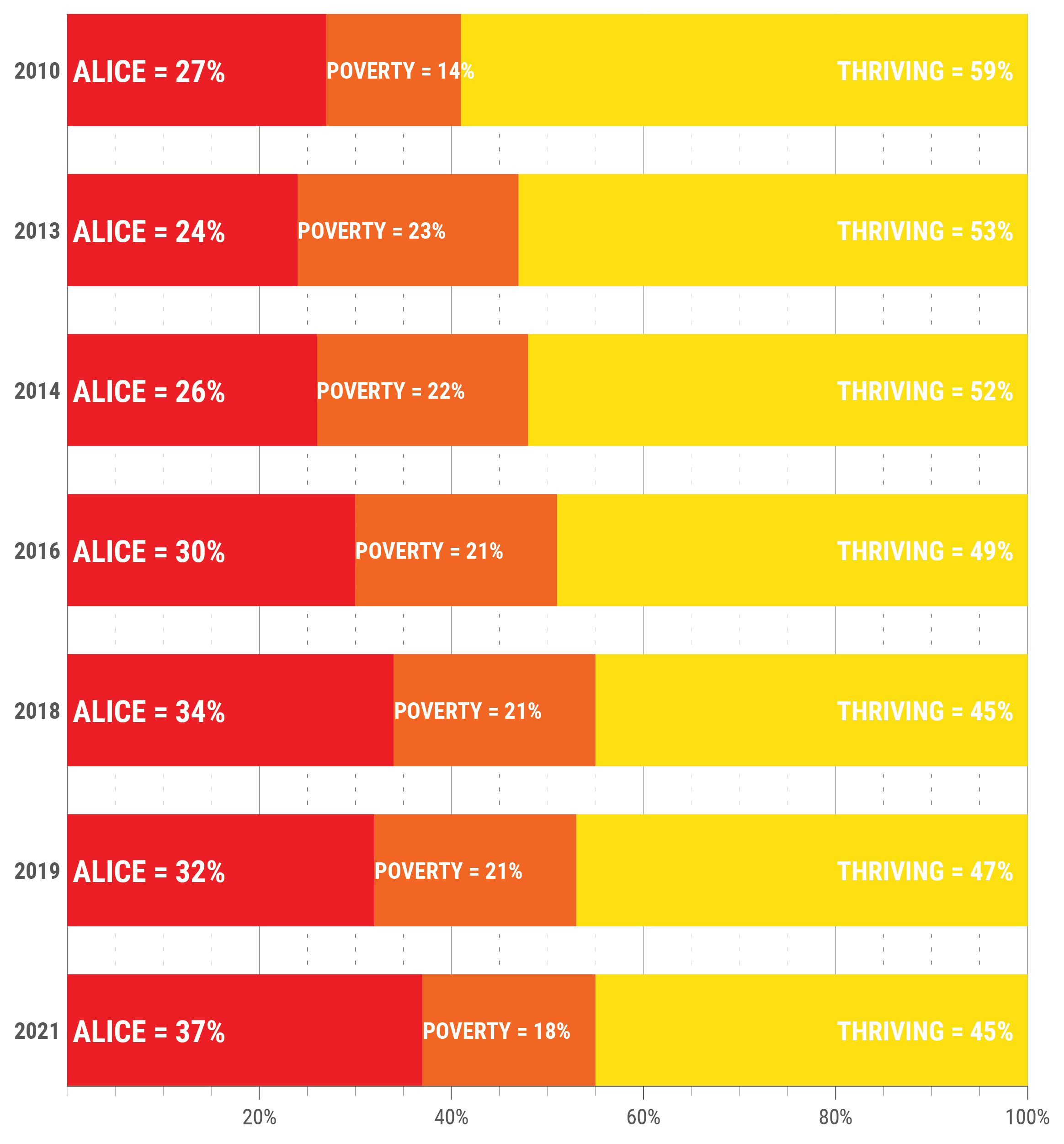
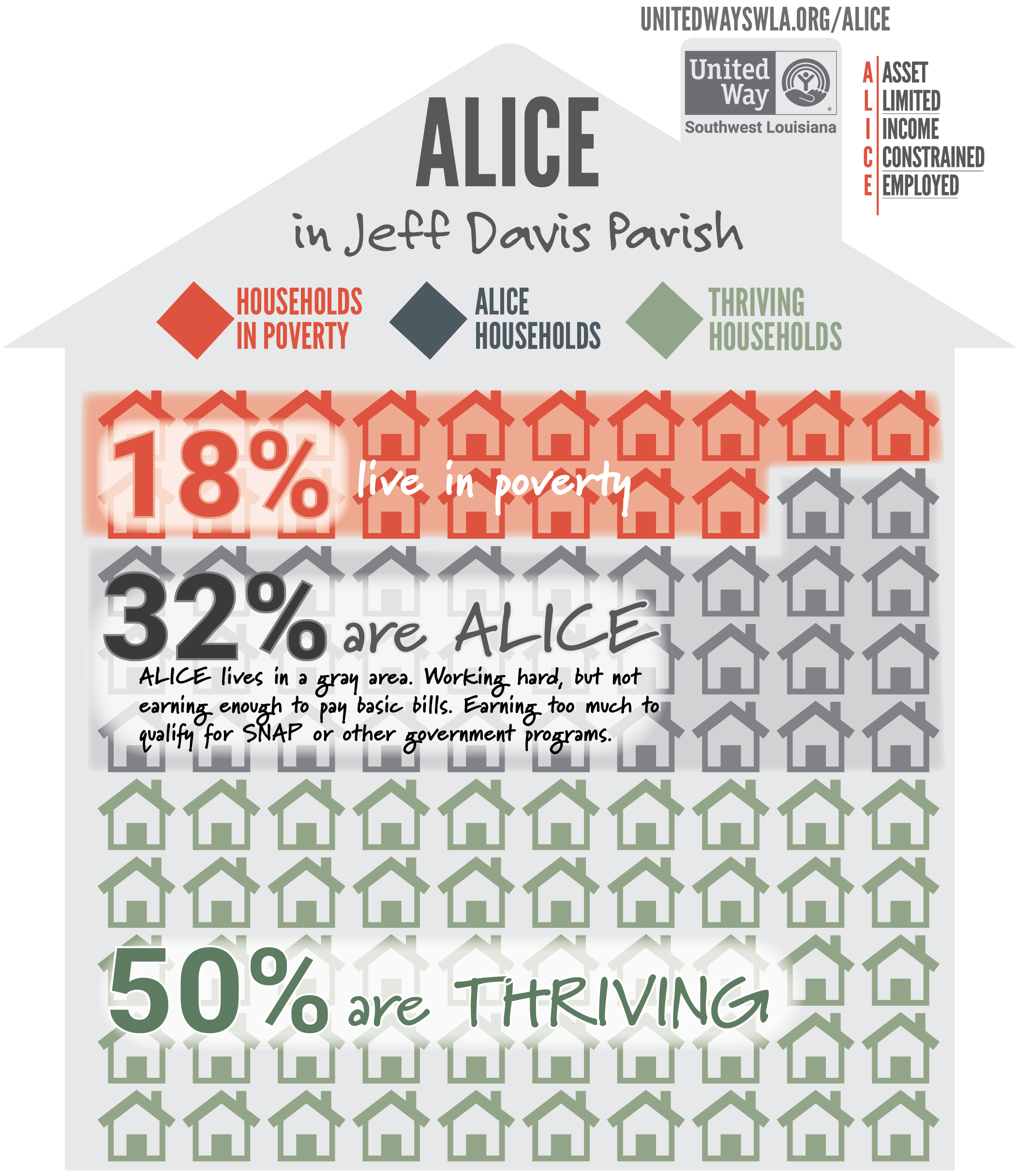
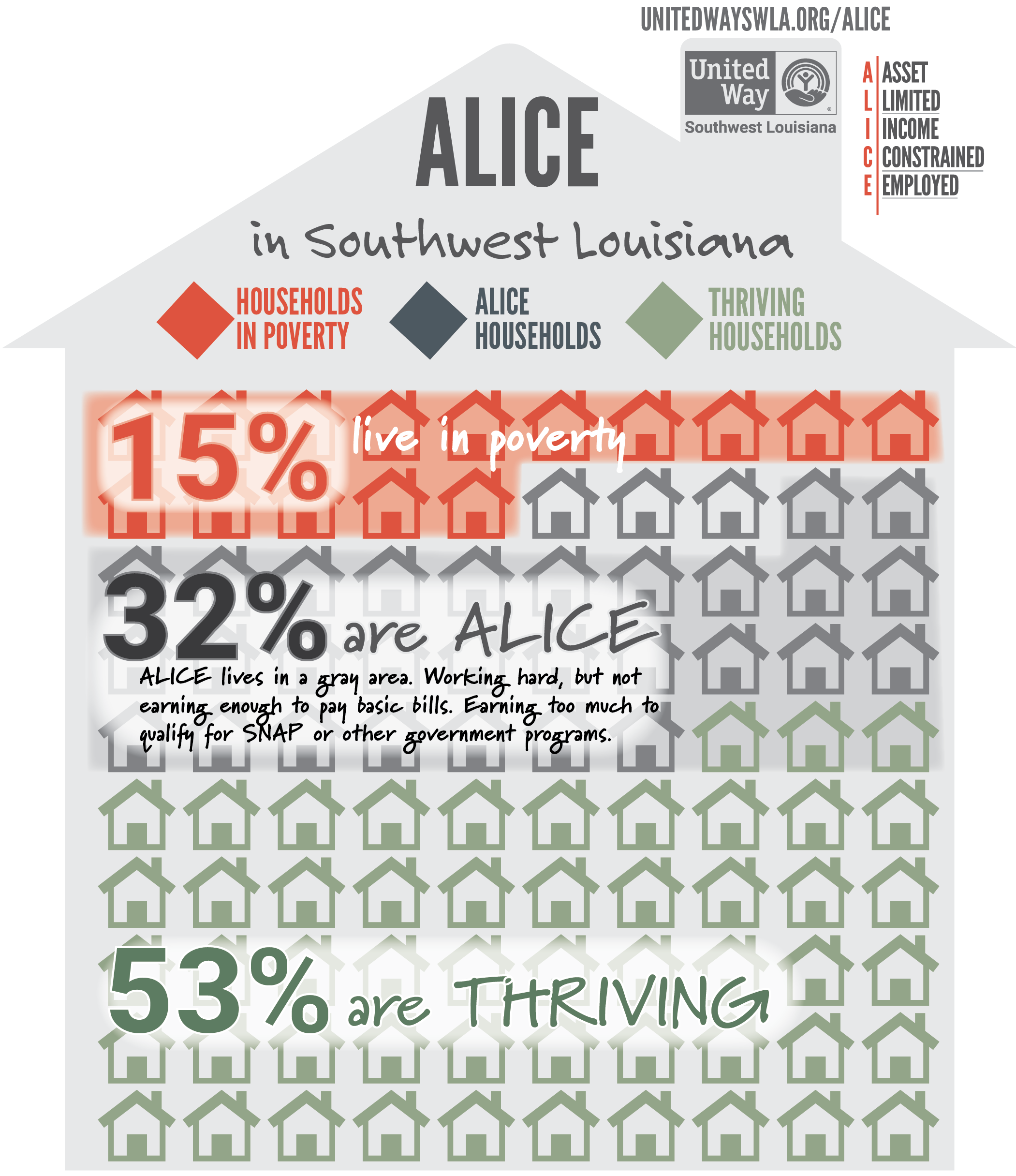
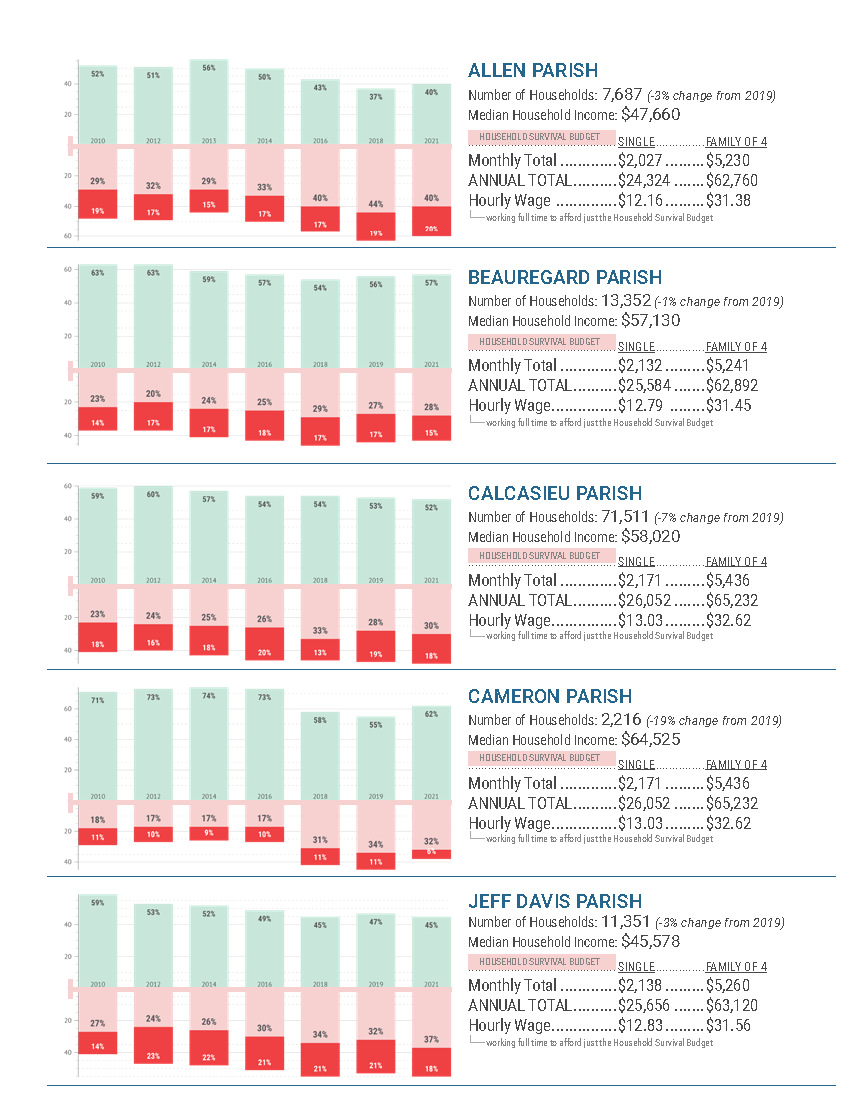
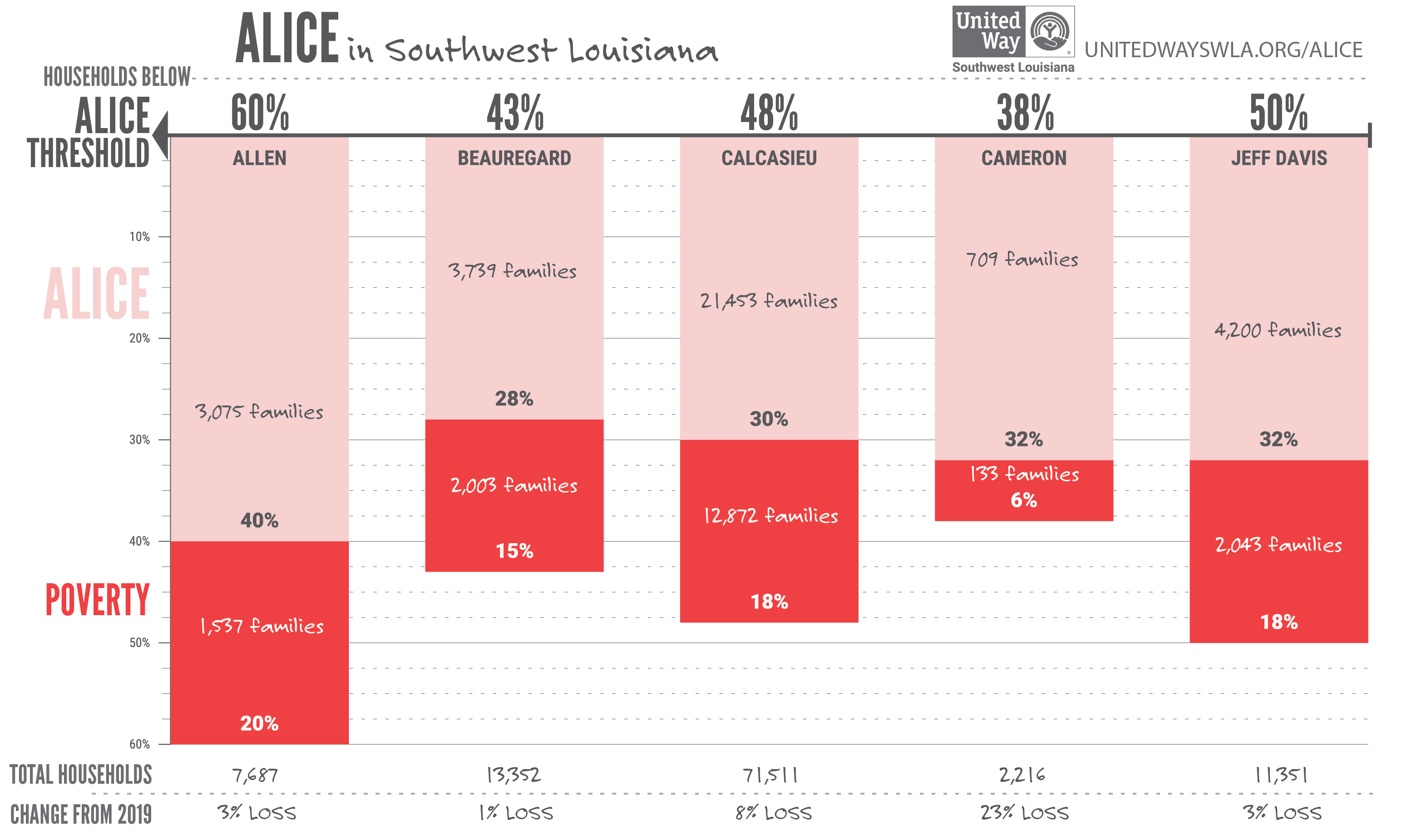
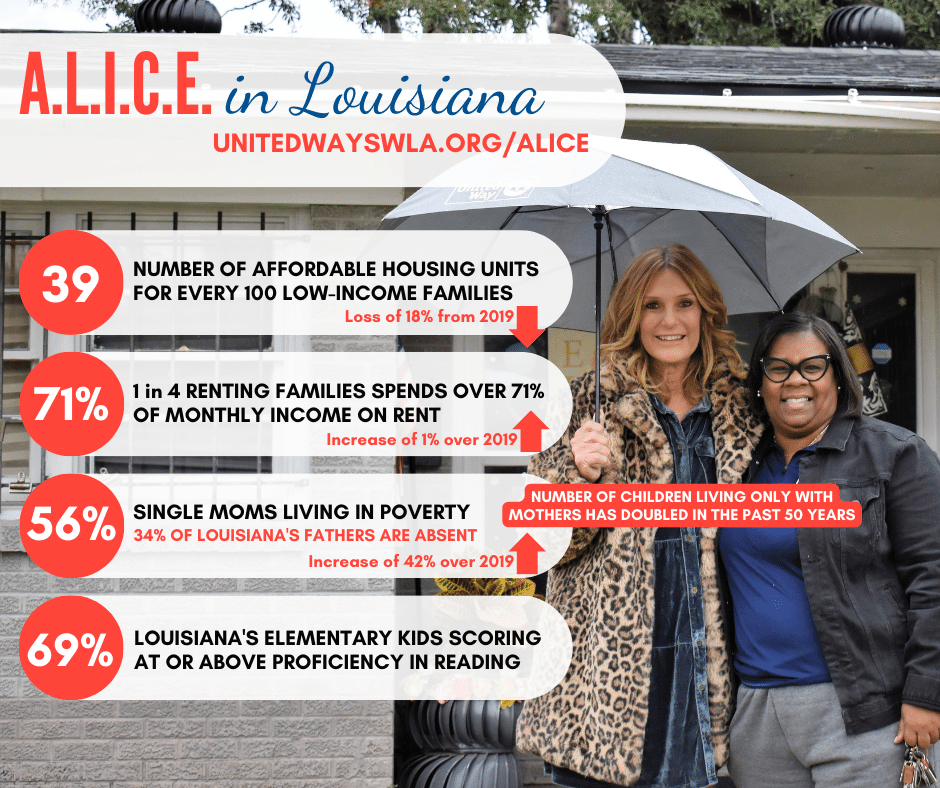

Website by: OneEach Technologies
Login | Logout